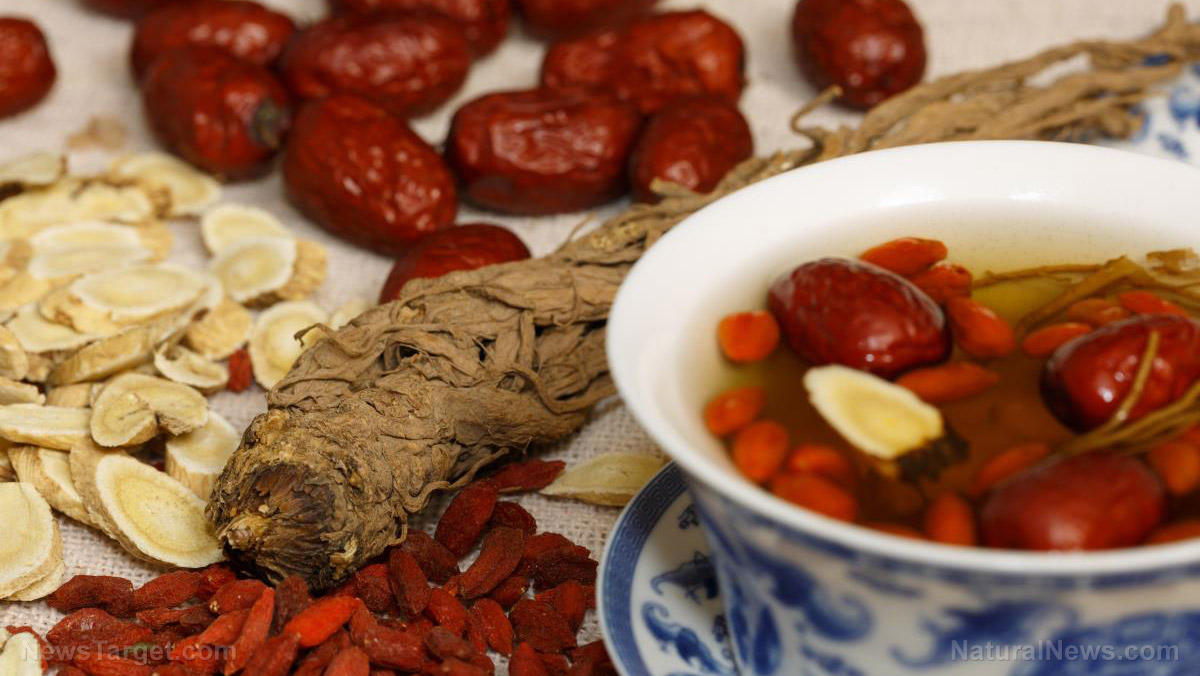Major component of silymarin may help prevent Parkinson’s and Alzheimer’s
10/23/2019 / By Evangelyn Rodriguez

Silymarin is an herbal extract that’s popularly used as a health supplement. It is associated with liver benefits and is often taken by patients with hepatitis. Silymarin contains a mixture of various compounds, the most active of which is the flavonoid known as silibinin. In a study published in the Journal of Medicinal Food, researchers from different universities in South Korea found that this phytochemical has neuroprotective effects that can be used to potentially treat neurodegenerative diseases. Its anti-inflammatory activity also helps save neurons in the brain from dying due to neurotoxic inflammation — a common feature of Alzheimer’s disease and Parkinson’s disease.
The health benefits of silymarin
Silymarin consists of a mixture of plant compounds known as flavonolignans. This extract can be isolated from milk thistle (Silybum marianum), a flowering plant native to Mediterranean countries and widely used in traditional medicine. According to studies, silymarin possesses liver-protective, antioxidant, anti-inflammatory, anti-cancer, and cardioprotective properties. (Related: Silymarin is one of the best ways to support liver health.)
The three main components of silymarin are silybin or silibinin, silidianin, and silicristin. The most active of the three is the flavonoid silibinin, which is said to be responsible for silymarin’s various biological activities. Some of the well-known health benefits associated with silymarin include:
- Treatment of liver problems
- Anti-aging effects on the skin
- Cholesterol reduction
- Weight loss
- Reduced insulin resistance
- Relief from asthma and allergy
- Cancer prevention
- Lower risk of bone loss
- Improved cognitive function
- Enhanced immune function
Silibinin can protect neurons from disease-causing inflammation
In their study, South Korean researchers demonstrated the potential of silibinin as an alternative treatment for Parkinson’s disease and Alzheimer’s disease. While Parkinson’s mainly affects motor functions, it can also impair memory and other cognitive functions like Alzheimer’s. Both conditions are considered neurodegenerative diseases that primarily affect neurons in the brain.

|
Discover how to prevent and reverse heart disease (and other cardio related events) with this free ebook: Written by popular Natural News writer Vicki Batt, this book includes everything you need to know about preventing heart disease, reversing hypertension, and nurturing your cardiac health without medication. Learn More. |
Parkinson’s disease and Alzheimer’s disease exhibit common features that are caused by numerous factors. One common feature of both diseases is neurotoxic inflammation. This type of inflammation is caused by the activation of microglia — the resident immune cells in the brain and spinal cord. Because of this, the regulation of microglial activation is considered a potential mechanism for preserving neurons in the brains of patients with Alzheimer’s or Parkinson’s.
In their previous study, the researchers reported that the upregulation of prothrombin kringle-2 (pKr-2), a protein domain associated with the initiation and progression of Parkinson’s disease, can induce microglial activation. This microglial activation leads to the death of dopaminergic neurons located in the substantia nigra, the part of the brain responsible for sending signals down the spinal cord to control the muscles of the body.
To determine if silibinin can prevent this, the researchers treated the substantia nigra of mice with the flavonoid and pKr-2. They reported that silibinin suppressed the production of inducible nitric oxide synthase (iNOS) — an enzyme involved in inflammation and cell death (apoptosis) — and neurotoxic inflammatory cell-signaling molecules like interleukin-1B and tumor necrosis factor-a (TNF-a). This inhibition occurred through the downregulation of an important signaling pathway that controls cell function.
After performing several tests to evaluate the activity of silibinin in vivo, the researchers reported that silibinin treatment could protect neurons in the substantia nigra from pKr-2-triggered neurotoxic inflammation.
Based on these results, the researchers concluded that silibinin is a beneficial natural compound with anti-inflammatory effects that can reverse pKr-2-triggered neurotoxicity. They believe that it can be used to protect dopaminergic neurons in the brain and treat Parkinson’s disease.
Sources include:
Tagged Under: alternative medicine, Alzheimer's disease, anti-inflammatory, brain function, brain health, disease treatments, flavonoids, herbal medicine, Herbs, inflammation, microglial activation, Milk Thistle, natural cures, natural medicine, nervous system, neurodegenerative diseases, neurons, neuroprotective, neurotoxicity, Parkinson's Disease, phytonutrients, prevention, research, silibinin, silymarin


















